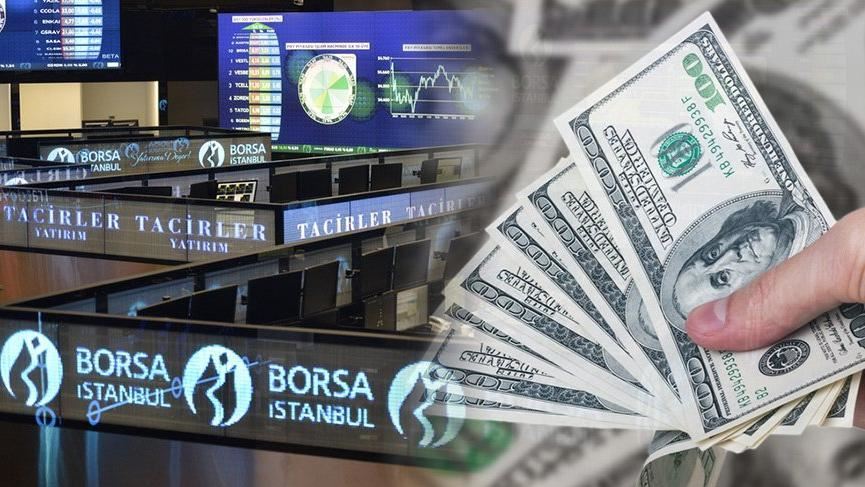While the global stock markets followed a buying-heavy course with the third quarter company profitability, which was announced last week, better than the expectations, the increasing number of cases, inflation pressure and supply problems in the Kovid-19 epidemic came to the fore among the factors that eroded the risk appetite of the investors.
The expectations that the People's Bank of China (PBoC) could lower the interest rates came to the agenda again and the estimations that the regulation of the markets came to an end supported the stock markets at the opening of the new week in Asia.
On the other hand, US Treasury Secretary Janet Yellen's statements were followed on inflation, which is another issue at the center of the markets. Yellen noted that inflation could continue until mid-2022, but the situation is under control.
The 3rd quarter company balance sheets, which continue to be announced, cause an increase in share and sector based divergences in the stock markets. While 200 of the S&P 500 companies are expected to announce their balance sheets this week, the financial results of companies such as Facebook and HSBC draw attention in today's calendar.
While the interest rate decisions of Japanese and European central banks are among the most important items on the agenda this week, it is not expected that both banks will change their interest rates and supportive policy stances.
After the US 10-year bond yield finished the previous week with an increase of 6 basis points from 1.6370 percent, it started the new week with an increase at 1.6450 percent.
The barrel price of Brent oil is trading at $85.4, starting the new week with a gain in value, following an upward trend for 9 weeks in a row, while the dollar index is at the level of 93.5.
On Friday, the S&P 500 index and the Nasdaq index lost 0.11% and 0.82% in the New York stock market, while the Dow Jones index rose 0.21%. In the New York stock market, index futures contracts are seen to be moving sideways today.
On the European side, while the concerns about the Kovid-19 outbreak continued to increase, the positive continuation of the negotiations between the UK and the European Union on the trade situation of Northern Ireland increased the risk appetite.
On Friday, the FTSE 100 index gained 0.20 percent in the UK, the DAX 30 index gained 0.46 percent in Germany, the FTSE MIB 30 index in Italy gained 0.18 percent and the CAC 40 index in France gained 0.71 percent.
The euro/dollar parity is currently at 1.1660, with an increase of 0.1 percent compared to the previous close.
Although the increasing number of cases in the Kovid-19 outbreak in Asia raises the risk perception, the expectations that monetary policy makers in China will reduce financing and the 3rd quarter financial results support the buying-weighted course.
Analysts stated that today, domestic capacity utilization rate, real sector confidence index and sectoral confidence indices will be followed, while abroad IFO business environment confidence index in Germany, Chicago national activity index in the USA and Dallas Fed manufacturing activity index will be followed.
Stating that the company's financial results, which continue to be announced, may cause share and sector-based divergences, analysts stated that 1.490 points in the BIST 100 index are in the position of resistance and 1.460 in the support position.
The data to be followed in the markets today are as follows:
10.00 Turkey, October capacity utilization
10.00 Turkey, October real sector confidence index
10.00 Turkey, October sectoral confidence indices
11.00 Germany, October IFO business climate confidence index
15.30 US, September Chicago national activity index
17.30 US, October Dallas Fed manufacturing activity index











Comments
No comment yet.